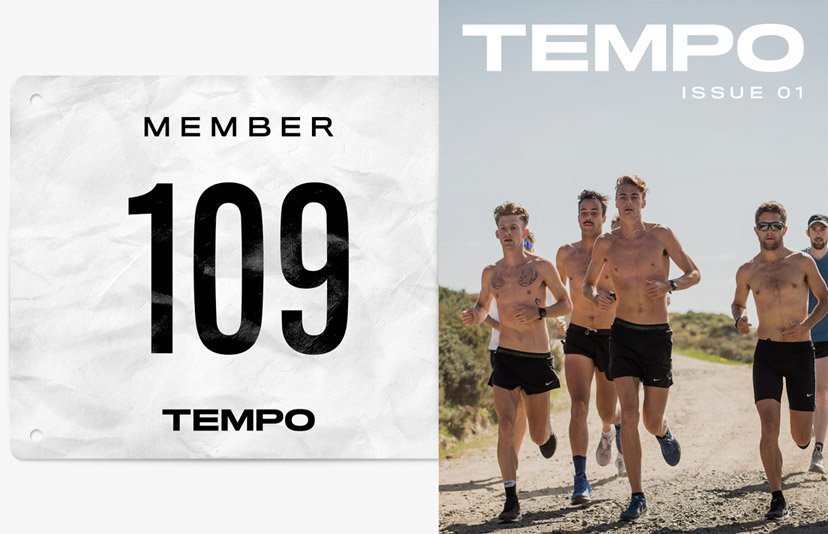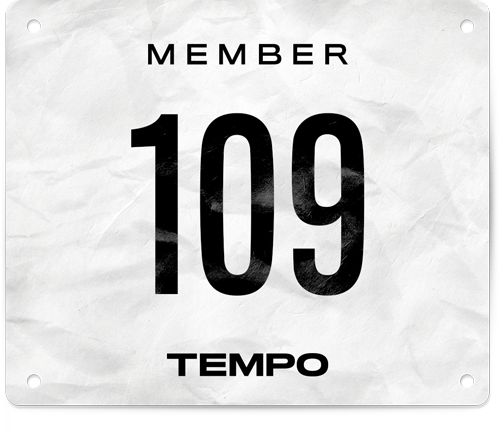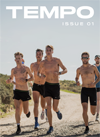Performance
Australian Nationals: Top Five Track Events
What to Watch in Adelaide
The athletics community descends upon Adelaide this week, as the National Championships kick off. While these are often referred to as the “Olympic Trials”, it’s worth noting that selections for Paris 2024 events “may” occur at the trials this weekend for athletes placing in the top two of their event, where the athlete has a World Athletics qualifying time.
Technicalities aside, Nationals events definitely play a substantial role in athletes’ discretionary cases for selection. The following five events serve up the best head-to-head clashes – you can follow the action live on 7Plus if you’re not able to make it to A-town.
Women’s 1500m (Saturday 13 April, 4pm ACST)
A selector’s nightmare at the best of times, the women’s 1500m currently has three women under the 4:02.50 Olympic qualifying standard. Linden Hall, Jessica Hull and Abbey Caldwell* sit 11th, 8th and 19th respectively in the current world rankings. Olympic finalist Linden Hall sits atop the time rankings; a 3:56.92 area record at the 2023 Diamond League final demonstrated Hall’s ability to latch onto a rapid pace and not let go. While her 2024 results have been a mixed bag so far, an 8:40.59 3000m personal best in Sydney in March suggests a strong base of off-season work may yet pay dividends in Adelaide.
At that same 2023 Diamond League final in Oregon (the Prefontaine Classic), Jessica Hull recorded her quickest qualifying performance of 3:57.57. Hull’s 2024 has been flawless, setting area records at 1500m, a mile and 3000m indoors, while improving her 800m best outdoors. She possesses a mix of strength and speed across events that will make for a fascinating final, with Hull capable of testing her competitors much earlier than the bell lap.
*Out of curiosity, we waited for Thursday’s 1500m heats before finalising this preview. Notably, Caldwell and Hollingsworth have withdrawn to focus upon the 800m. These withdrawals clarify the final, with Georgia Griffith (4:00.16) and Sarah Billings (4:06.77) now likely to pose the main threats to Hall and Hull. Griffith is fresh off an 8:37.85 personal best over 3000m, returning to the form that saw Griffith place fourth at the Rabat Diamond League in 2022, followed by a ninth place finish in the 2022 World Championship final. Billings is similarly back in business after a 2:00.55 800m personal best.
Men’s 1500m (Saturday 13 April, 4.10pm ACST)
Both the women’s and men’s 1500m events feel like a convergence of age groups. 28-year-old Stewart McSweyn is joined by fellow time-qualified athletes Adam Spencer (22) and Cameron Myers (17).
McSweyn has raced sparingly domestically in 2024; he’s appeared twice, over a mile (3:52.00) and 1000m (2:20.32). Looking back, this is normal for McSweyn, who raced twice domestically in 2023 and 2022 respectively. An athlete of significant international experience, King Island’s finest export showed a lack of racing was not suggestive of any lack of form by taking down Jake Wightman and Cameron Myers in impressive fashion at February's Maurie Plant Meet in Melbourne. McSweyn poses a tactical conundrum to most of the field – attempting to outrun a 3:29.51 athlete from the gun would be brave, but leaving the race to a sprint finish simply brings a host of characters into the equation.
Adam Spencer has prepared predominantly in the USA, a product of the NCAA system. A 3:31.81 run at the 2023 London Diamond League and a World Championship semi-final appearance has put Australia’s metric milers on notice.
At the grand old age of 17, Cameron Myers domestic appearances have included a 3:33.30 1500m, a 3:52.44 mile and a 7:46.38 3000m. Myers has appeared calm and clinical throughout, knowing precisely when to take on a race, pulling away from strong fields in Adelaide, Bankstown and Sydney.
The athlete who makes the first move in the national final will set off quite the domino effect, as Oliver Hoare (3:29.41) is returning from injury, followed by Jesse Hunt (3:33.64) and Jack Anstey (3:51.51 mile).
Women’s 800m (Sunday 14 April, 3pm ACST]
Australia’s two-lap talent is as deep as ever, with a fun tactical quirk. Catriona Bisset (1:57.78), Abbey Caldwell (1:58.48), Claudia Hollingsworth (1:58.81) and Bendere Oboya (1:59.01) have all shown a propensity over the last few seasons to lead a race. Understanding this requires a little context, but it sets up a fantastic national final.
Catriona Bisset burst onto the scene in 2019 with a distinctive tactical style, controlling races from the front, forcing competitors into uncomfortable pigeonholes. Bisset has retained this style domestically, with her 10 best 800m times averaging out to 1:58.45 to spotlight an athlete capable of racing fast locally and internationally.
Stretching my analogy slightly, Caldwell’s initial 800m breakthrough in 2023 at the Sydney Track Classic saw her and Ellie Sanford sit shoulder to shoulder up to the 500-metre mark. Caldwell then took off to run 1:58.62, displaying a fearlessness in striking from long range.
Claudia Hollingsworth’s 800m maiden Olympic qualifying run in Canberra in early March saw the teenager lead from start to finish. This all-gas approach complemented Hollingsworth’s tactically patient win over Caldwell at the Maurie Plant Meet a couple of weeks earlier.
Oboya’s background over 400m has seen the 23-year-old trial a variety of first-lap approaches, complicating plans for competitors who need to decide whether or not to take chase in the opening stages of a race.
With these variables at play, Carley Thomas (1:59.95), Imogen Barret (2:00.96) and US-based Hayley Kitching (2:01.17) will all want to be involved when the athletes enter the home straight.
Women’s 100m Hurdles (Sunday 14 April, 3.30pm ACST)
Sprint hurdles?! No, I have not forgotten other track events exist. Another event in which Australia has substantial depth, the 100m hurdles is particularly interesting for its variety of storylines.
Across the event we have the established international presence of Michelle Jenneke (12.66), Olympic semi-finalist Liz Clay (12.71), World Championship semi-finalist Celeste Mucci (12.84) and 12.91 performer Hannah Jones.
The depth alone here makes for an exciting final, but it’s even more interesting because the field all appear to be in different stages of their season.
Jenneke has had a gradual start to the season, but a 12.97 run in Sydney in March shows her heading in the right direction. Clay has continued her return from a brutal foot injury; wins in Melbourne and Sydney against replica national finals bode well, and she’s backed these with a 100m personal best in February (11.72).
Jones has been on social media admitting to a less-than-ideal build up, plagued by injury setbacks. Still, given her established track record, it would be unwise to rule her out. Mucci sustained a hamstring injury in Canberra earlier in the year, but she is entered and has shared her return to hurdling via social media. The field will also be wary of the season’s biggest improver, Danielle Shaw, who notched a 13.01 personal best, improving by over four tenths of a second, in January after an injury-riddled 2023 kept her off the track.
Men’s 5000m (Sunday 14 April, 3.45pm ACST)
The men’s 5000m field holds an impressive list of personal bests, yet Australia is currently without a man under the qualifying standard of 13:05.00. This is partly down to the fact that only two Australians have ever eclipsed that mark. Yet we do have five active Australian athletes under 13:10.00, all of whom are entered for Adelaide.
While I’m not expecting a qualifying time from the field in Adelaide, the combination of Stewart McSweyn (12:56.50), Jack Rayner (13:06.00), Ky Robinson (13:06.42), Morgan McDonald (13:07.30) and Oliver Hoare (13:09.96) will make for an interesting final.
Rayner and McSweyn have raced at opposite ends of the distance scale in 2024, with McSweyn’s 3:52.00 mile a contrast to Rayner’s 27:09.57 area record over 10,000m. Robinson and McDonald both took advantage of early season form and the Boston University indoor track to dip under 13:10.
McSweyn and Rayner will be wary of Robinson’s tactical nouse, which has been developed over years in the NCAA system and yielded him two NCAA titles. McDonald and Hoare are both returning from degrees of injury, yet travel to Australia from their US training base bodes well.
The likes of Matthew Ramsden (13:16.63) and the NCAA-developed Jackson Sharp (13:26.56), Zach Facioni (13:27.71) and Toby Gillen (13:30.27) will involve themselves tactically. They’ll be adding to an overflow of talent, one that included defending national champion Callum Davies, who’s coming off personal bests of 3:35.14 (1500m) and 7:47.33 (3000m).
You can watch the 2024 Australian Athletics Championships live on 7Plus. Times given above are for Adelaide, Australian Central Standard Time. Those in Perth should subtract 1 hour, 30 minutes. Those in Australia's eastern states should add 30 minutes.
You can get live results on the Roster Athletics website or download the free mobile app.


